Hanging out with the Sheroes

The dimly lit café was stirring to life on a Monday morning as the traffic flow on the sleepy Fatehabad Road outside gradually picked up pace.
Sheroes Hangout is tucked away between some nondescript dhabas (eateries), across from a five-star luxury hotel. In Agra, famous as the city of the Taj Mahal, the cafe is a well-known address. The décor of the restaurant is tastefully done and the walls are enlivened by colourful graffiti.
Sheroes is on the map for a unique reason: it is run by women who have survived acid attacks.
At the start of the day, Bhupendra Singh (29), the cafe's operations manager, looks slightly annoyed as he gets the furniture set in place. The mood transforms when lively Rupa (24) enters, swinging the glass door.
It is hard to believe that till a few years ago, Rupa avoided talking to people, hiding her face behind a dupatta (long scarf). She did that so she would not have to expose her face, which was mutilated by corrosive acid thrown on her when she was just fifteen, allegedly by her stepmother and some other men, while she was asleep.
"I don't care anymore about what people think or when they stare at me. It is those who attacked me who should hide their faces. Why should I?" she asks.

Sheroes, which first opened in Agra in 2014, now has branches in Lucknow (Uttar Pradesh) and Udaipur (Rajasthan). The café was born out of the Stop Acid Attacks campaign, which was launched in 2013.
Alok Dixit, founder of the campaign, explains its genesis. "We started an online campaign to bring together survivors of acid attacks, and more and more of them joined us. Most survivors are in the age group of 16 to 28 and are dependent on their families." Sheroes was opened after everyone wanted a self-sustaining system for the survivors, he said.
Unlike Rupa, though, 30-year-old Rukkaiya continues to cover her face when she is not at home or working at the Sheroes Hangout. "I felt more confident after I joined Sheroes and met other survivors. They are like my family and even the guests treat us like normal people," she said.
Rukkaiya was just 14 when her sister's kin threw acid on her face, because she rejected a proposal for marriage.
India's federal Home Affairs Ministry said in Parliament on April 11, 2017 that 147 women suffered acid attacks in 2015. This is widely seen as an underestimate, since many attacks go unreported.
In 2016, a national law was passed under which an acid attack is recognised as a cause of disability, and victims have a right to financial support. Three years before that, specific legal provisions were added to the Indian crime code making an acid attack punishable with a minimum of ten years in jail.
India's Supreme Court had also stepped in earlier, in 2015, and ordered curbs on over-the-counter sale of acid. The court asked the government to ensure that buyers are at least 18 years old, and provide a government photo ID to make a purchase. Yet, clandestine sale of acid continues and in reality it remains easily available and cheap, Stop Acid Attack campaigners say. It is also difficult for survivors to access the minimum support fund of 300,000 Indian rupees that they are entitled to.
While these steps by the government can give some hope to survivors, the number of victims is not yet showing signs of a decline according to campaigners. Initiatives such as Sheroes and the supportive people who visit have a vital role to play.
One of the regular patrons at the café is Tanya Sharma (21), a civil service aspirant. "A friend first told me about the café and now I come here often. The food is really good and the hospitality is even better," she says.
The manager of the cafe says it gets many regular guests who live in Agra, but most of its patrons are foreign tourists. Sheroes offers North Indian and Continental cuisines but the menu card mentions no prices. The guests can pay whatever they like.
"We make a profit almost throughout the year but some months can be lean and we try crowdfunding then to keep the café running," he said.
As lunch time approaches, a small bus arrives. A group of curious foreign tourists clamber down to have a meal. Anurag Shekhawat (27), a tour manager with Canada-based 'g adventures' ushers them in.
They are received by Madhu Kashyap (37), a survivor. She switches on a documentary on the café's large screen television before taking food orders. The documentary tells the guests the story of Sheroes. As the video ends, Suzanne, a Canadian visitor, wipes tears away.
"I can't even imagine the horrible experience these women have gone through but it is empowering to see their strength," she says.
Madhu had at one point contemplated suicide, before someone suggested Sheroes Hangout.
"I got to know about it from the doctor who was treating me. Ever since I joined, my life has changed," she said.
https://www.facebook.com/SheroesHangout/
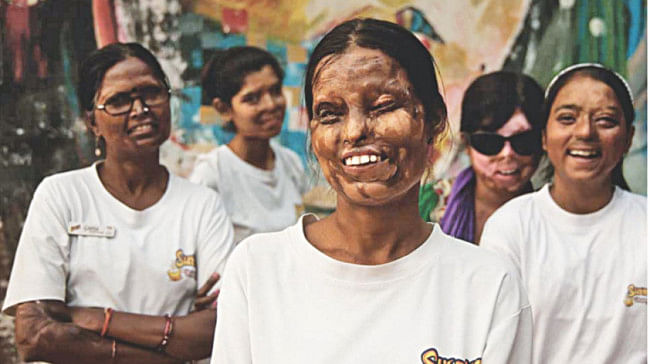

 For all latest news, follow The Daily Star's Google News channel.
For all latest news, follow The Daily Star's Google News channel. 

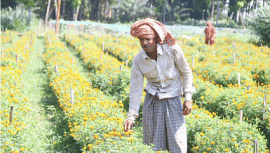
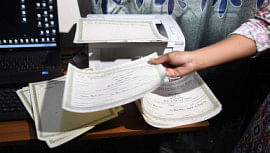
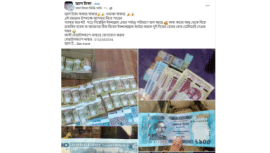

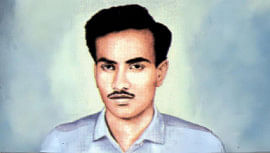

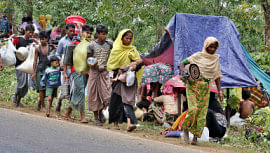
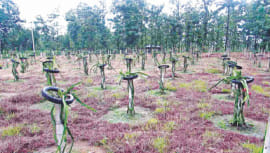
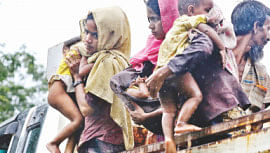
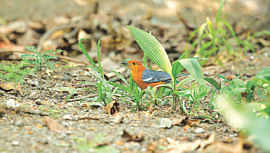
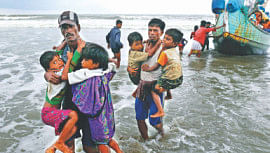

Comments